Alphonso David on Trump’s anti-LGBTQ agenda: “We are at a crossroads for the soul of our country.”
HRC's new president wants to stop Trump, elevate trans people, and fight for LGBTQ rights everywhere

“We are at a crossroads for the soul of our country,” says Alphonso David. “In this particular moment I thought it was critical to take this role to advance LGBTQ rights, because this community is under direct assault by the federal administration. We have an opportunity — and, personally, I have an obligation — to make sure that I can use my skills and my time to advance and protect the rights of LGBTQ people.”
The role to which he’s referring is president of the Human Rights Campaign, the world’s largest LGBTQ advocacy organization. For David, it’s the culmination of 16 years of advocacy work, a passion first ignited by the Supreme Court’s landmark Lawrence v. Texas decision in 2003 — which voided state sodomy laws prohibiting consensual same-sex relations.
“Lawrence for me was the bookend where I felt I had sat it out and advocates had fought that case all the way up to the Supreme Court,” he says. “I was working in a law firm. I was doing good work, but certainly not work that spoke to my soul. I was not doing my part. At that point, I made a decision that it was more important for me to sacrifice whatever the financial benefits are associated with working in large institutions, and take on the fight and use my skills and energy to advance civil rights for LGBTQ people.”
David’s dedication to fighting for the disenfranchised and marginalized has been fueled not only by his LGBTQ identity, but his family’s experience as political refugees. Born in the United States but raised in Liberia as the second of four children, David was 10 when his father — then the Mayor of Monrovia — was imprisoned, and his great-uncle, William Tolbert, was assassinated. The surviving family members, including David, were placed under house arrest.
When they were finally allowed to seek asylum and relocate to Silver Spring, Md., he faced his own troubles fitting in. Some of his teenage classmates were so ignorant of Africa and Liberia that they actually thought he’d have a tail.
“It’s alienating when you come to this country, and I think we still see that in various permutations and different identities, faces, you’re treated as the other,” he says. “I was treated as the African and the person to be ostracized.”
That experience, of being an outsider, has equipped David with an empathy for those discriminated against or mistreated. Since taking over at HRC, he has announced several initiatives aimed at improving the economic circumstances and safety of the transgender community — particularly trans women of color, who are more likely to be victims of violence or live at the margins of society. Under his leadership, there has been an intentional focus on intersectionality at HRC, as well as promises to work alongside other civil and human rights organizations.
“We’re working with coalition partners across the country in a variety of different spaces. Immigration issues affect LGBTQ community. The homelessness issue affects LGBTQ community. Poverty affects LGBTQ community. We can’t just simply think of this community through a silo or through some myopic lens. We have to really think broadly and think about all of our coalition partners in making sure that we’re there for them because they will be here for us.”
HRC has also entered the debate over voting rights by announcing a new partnership with former Georgia gubernatorial candidate Stacey Abrams and her organization Fair Fight, to mobilize voters — particularly people of color and members of the LGBTQ community who have been disproportionately affected by strict voter ID laws, voter caging, and other suppression tactics — and ensure they have access to the ballot box.
And with David at the helm, HRC has made defeating President Trump one of its chief priorities over the next year. Trump’s administration has made it clear that it does not deem LGBTQ people as deserving of legal protection.
“As he fumbles from one self-inflicted crisis to the next, Trump is systematically seeking to turn us against each other and have us live in a state of fear,” David said in his speech at the HRC National Dinner in Washington last weekend. “By adopting or acquiescing to Trump’s baseless factionalism, we’re losing something much larger, something much more significant than what Trump tells you. We’re losing our souls…. I submit to you that if we’re going to weather this storm, this existential crisis that we face in this country, we must see beyond ourselves.
“See yourself in the bisexual black man living with HIV in the South, with little to no access to health care. See yourself as the young Latinx lesbian immigrant who has been brutalized and persecuted in her own country, because of who she is and who she loves. See yourself as the black transgender woman who is literally fearful that she’s going to die when she steps out of her home. We must do more to transcend the artificial barriers between us…. We cannot have Donald Trump and Mike Pence define us. We must define ourselves, and define ourselves inclusively.”

METRO WEEKLY: A lot of people are unaware of what happened in Liberia, during your childhood. What led your family there, and why did they then have to seek asylum?
ALPHONSO DAVID: I was born here in the United States, in Silver Spring, Maryland a few decades ago, and my parents were here for school. Both my parents were born and raised Liberians. My father went to Georgetown University and graduated from Howard. My mother went to school in Virginia. They had me, and went back to Liberia after they finished their studies.
I grew up in Liberia for about 14 years. I lived a fairly privileged existence because my uncle and my father were elected officials. My father was elected as the mayor of Monrovia, the capital city, and my uncle was elected as the president of Liberia. I got introduced into politics very early.
On April 12, 1980, there was a military coup that overthrew the government. My uncle was assassinated. My father was put in prison. We stayed in one house for more than two years where we couldn’t leave, because we were under house arrest. After my father was released from prison, he sought asylum and we moved to the U.S.
MW: Did you fully comprehend what was going on at the time, or was it something that your parents sheltered you from?
DAVID: I knew what was going on. My parents did try — at least my mother, my father was incarcerated at the time — to shelter us from what was happening, but it was difficult to do that. I mean, we had to run out of our house under gunfire. The night of the military coup, there were guards on our front door. They were shooting to get into our house. We had to jump out of the bathroom window to run out of the house. It’s pretty difficult to shield us from that. When the military came to pick up my father to take him to prison, I knew something was deeply wrong.
When my father was released from prison, he went to the U.S. Embassy seeking asylum. I believe he was turned down or rejected. Not sure of all the facts associated with that, but I know he was denied asylum or denied access to come to the U.S.
I think he went back two or three times before they agreed to allow us to come to the U.S., I believe because my brother and I are U.S. citizens. We were born here. My two younger sisters were not. Once we came to the U.S., my family was split in two. My mother and my youngest sister stayed in Liberia. My father, my older brother, myself, and my other sister came to the U.S. We stayed in the U.S. for about a year-and-a-half or two before my mother joined us. We started in White Plains, New York, then went to Baltimore, which is where we stayed for a short while, and then we ended up in Silver Spring.
MW: What were your teenage years like?
DAVID: I studied a lot. I played, and still play, a lot of tennis. In college, I played racquetball. I love film and music. In Liberia, we couldn’t watch a lot of movies. We just didn’t have television. When I came to the U.S., I discovered movies and I fell in love with Pedro Almodóvar, Wong Kar-Wai, Francis Ford Coppola, Spike Lee, Julie Dash, filmmakers that were creating images that resonated with me in stories that were beautiful. I gravitated to film, music. I started really spending a lot of time listening to jazz, and classical, and R&B, and soul, and some pop.
MW: Did your experience in Liberia impact life in the U.S. at all?
DAVID: I went to the University of Maryland in large part because my mother was terrified of me leaving home. My mother was traumatized in part because we had just gone through a traumatic experience going through the war and she wanted to have her kids stay as close as possible. We made a deal that I couldn’t go that far from home. I would be allowed to stay on campus, but I would have to stay within the state. I selected the University of Maryland College Park, and I went to school there focusing on criminal justice, criminology, philosophy, sociology.
MW: You then went to Temple Law School, in Philadelphia. Why law?
DAVID: I selected Temple because it was, and I believe still is, listed as the number-one trial advocacy school in the country. I wanted to master the law and advocacy to represent the disenfranchised. Given my experience of being the “other,” given my experience of going through a traumatic experience in Liberia, I wanted to appreciate and master the law in a way that I could help people.
I graduated from law school and clerked for a judge in the Eastern District of Pennsylvania in federal district court. Then I got an offer to join Blank Rome, a major law firm in Philadelphia. I was a litigation associate focusing on commercial litigation, contract disputes. I did that for two years. Then I got an offer to run a company in California for Fred Segal and two other shareholders. It’s an addiction treatment center in California, and I did that. Then Lawrence v. Texas happened.
Lawrence v. Texas is a Supreme Court case where the court concluded that same-sex couples have a liberty interest in engaging in intimate sexual conduct. After that decision came out, I wrote a letter to Lambda Legal indicating that I was interested in joining their organization, and I submitted a resume. I think in a day or two, I got a call back and they wanted to interview me for a job.
I interviewed at Lambda, got an offer. They said, “You can work in Los Angeles or New York or any of our other offices.” I picked New York, which is where my sisters worked at the time. I practiced impact litigation for three years all over the country, litigating marriage cases, parental rights, HIV discrimination cases, discrimination in schools, and then ultimately entered into government.
I went to the Division of Human Rights for a year, where I served as deputy commissioner and counsel to the commissioner, revamping the organization and thinking about how we could advance the mission of the agency. Then I joined the attorney general’s office, where I ran the civil rights bureau for the attorney general.
Again, in that role, I litigated cases all over New York, employment discrimination cases, housing discrimination cases, public accommodation cases, immigration-related cases. Then I joined the governor’s office as his chief policy advisor in civil rights and most recently served as his chief counsel.

MW: Let’s talk about your coming out process. When did you first know that you were gay?
DAVID: I was maybe five or six. I appreciated that I found boys attractive, more so than girls, or maybe just as much. But socially, we were prohibited from expressing an attraction to other boys. You could say, “Oh, that girl is really attractive.” But you can never say that for another boy.
In my mind, I assumed that all boys felt the same way, they were just not allowed to say anything. We had this secret in our heads that we were not allowed to express. I did not come out until I was in my 20s. After college, I came out to my parents with some prodding.
I had told my sisters a few years before and maybe one or two friends. Four or five people knew that I was gay before I came out to my parents, but I view coming out to my parents as my actual coming out. Because at that point, I was open. I didn’t care who knew about my sexual orientation.
MW: What was their reaction?
DAVID: Not good. My father disowned me. My father had warned a number of years before that if any of his children identified as gay, he would disown them. He followed through with that, and he disowned me. He ultimately came around and started the process of understanding that I could not change my sexual orientation. He was a deeply philosophical and religious man, and it took him some time to understand and appreciate that my sexual orientation was just as deeply rooted as his.
MW: How long did it take him to come around?
DAVID: A few years. I told my father that I was gay, he disowned me, and then we had a conversation maybe a year and a half later. He said, “It’s taken you 20-plus years to come out. I need some time.” I thought that it was only fair to give him the time to come to terms with the realization that his son was LGBTQ, because in his mind, he had a very different vision of who I was. He ultimately passed away in 2006, I think, with the understanding that my sexual orientation was not a choice.
MW: As a gay man, what were your first experiences navigating issues like relationships or just being out at work?
DAVID: Well, it’s interesting that you ask that question, because when I came out to my parents, I viewed it as a personal coming out. I segregated my life and bifurcated it. I had my professional life, and my personal life. I was out personally, but I was not out professionally.
As an example, when I was at the law firm, I didn’t date in Philadelphia at all. If I did, it was one or two dates, but I didn’t date people in Philadelphia because I had this very clear line that this is a professional space. I don’t talk about my personal life in the professional space. In the personal space, I can talk about the professional, but the lines don’t cross the other way. It took me until a few years later, when I left the law firm and before I joined Lambda, for me to reconcile both my professional and my personal life and understand that I needed to embrace both with as much support and recognition that they deserve.
Going back to the early 2000s, when I joined Lambda Legal, I started teaching law. I taught law for 10 years at Fordham Law School and Cardozo Law School. When I first started teaching at Fordham, a few of my students said to me, “Is it possible that we can change the description of your course so that it doesn’t reflect on my transcript?” I said, “What do you mean?”
The class that I taught was “Constitutional Law — Sexual Orientation on the Law.” These are law students that were concerned about that course showing up on their transcript, and having a prospective employer see it and deny them a job. That was a concern then, and I suspect, for some people, it still is.
When I took the job at Lambda, one of my very, very close friends started crying. I said, “Why are you crying?” She said, “This will ruin your career, and I want you to succeed.” She was worried that by accepting a job at a gay rights organization at the time, which is what it was framed as, it would hurt my chances of succeeding in life professionally. And it’s real. It’s a concern that many people in a variety of professional spaces have.
MW: Let’s move to Trump. His administration wants to roll back policies or the interpretation of statutes relating to LGBTQ protections. However, some argue that LGBTQ organizations are overreacting to those changes and that the administration is just taking a strict constitutionalist interpretation of the law. What’s your response to that?
DAVID: That’s bogus. I think anyone suggesting that the Trump administration is simply strictly construing the law has lost any relationship to reality. The government should be focused on protecting all of us, not some of us. The Trump administration is strategically focusing on stripping protections to a selected group of people. We just happened to be in that group, LGBTQ people and women, generally, and racial minorities, generally.
The Trump administration has strategically sought to roll back protections that have existed for years. There’s no reason to do that. If your goal is to make sure that we’re all treated equally, if your goal is to make sure that our liberty interests are weighed in the same way, then there should be no reason why you should be rolling back those protections, but they’re doing that, because they’re seeking to make us “less than.” They’re seeking to make sure that the protections that currently exist no longer exist. Why would you, as the federal administration, say to federal contractors that you are allowed to discriminate against LGBTQ people? If you actually value LGBTQ identity, if you understand that is worthy of respect and recognition? Why would you say to a federal contractor, “I’m giving you clearance to discriminate against people”? This is very real.
When someone says you’re making a big deal out of this, I’d say to them: housing, shelter, access to public spaces, credit, those are basic necessities. What you’re saying to me is, they’re not as important to me as an LGBTQ person, but it’s important to you as a non-LGBTQ person. That doesn’t make any sense. That’s not how our constitution was drafted, and certainly not how it should be interpreted.
MW: I’ve heard people who are Trump supporters say that he doesn’t really care about LGBTQ issues. Is it the people who surround him who are behind these actions?
DAVID: It doesn’t matter. From my perspective, he is the commander-in-chief. He’s the president of the United States, the buck stops with him. If he is employing people or empowering people to make decisions that are discriminatory in nature, I’m going to hold him accountable.
I think that this idea, that we should be focused on trying to identify who’s advancing the policies, is a false choice. From my perspective, I’m holding the entire administration responsible, with particular focus on him, because he’s responsible. He has the power to tell them no. He has the power to tell the Department of Education, “Don’t implement that policy, which is going to hurt transgender kids.” He has the power to tell HHS, “Don’t change the policy on the Affordable Care Act.” He has the power to tell the Department of Labor, “Don’t implement this regulation that’s going to allow federal contractors to discriminate.” He’s not doing that. And because he’s not doing that, your ability to act and your action — or inaction — will be viewed through the same lens.
MW: Some LGBTQ Republicans believe major LGBTQ groups, including HRC, aligned themselves with former Secretary of State Hillary Clinton and the Democratic Party in a partisan way in 2016. As a result, when Trump won, those organizations were unwilling to meet with Republicans or try to work out compromises that could have benefited the LGBTQ community. What do you say to that?
DAVID: It’s laughable. It’s gaslighting. Look, for someone to say that the Human Rights Campaign or any other LGBTQ organization is aligned exclusively with the Democratic Party is ignoring history. All you have to do is see the endorsements that this organization has advanced over time. The practical reality is we have an administration that is spewing hate and venom, and we are not going to apologize for not supporting that administration.
The fact that the Log Cabin Republicans made the decision to endorse [Trump] is not only laughable, it’s frightening. It’s so divorced from reality that it calls into question why they were doing it in the first place. What is the justification for supporting a president that has publicly and behind the scenes sought to roll back all of these protections that we have, and has strategically and systematically sought to attack LGBTQ people?
I can’t think of one specific policy that this Trump administration has advanced that supports LGBTQ people. Not one. To suggest “he’s thinking about decriminalization internationally,” I don’t even know what that means. That doesn’t make any sense. If you’re interested in actually advancing policies to decriminalize anti-LGBT or decriminalize certain laws in other countries, start at home. Why is it that you’re taking away rights from LGBTQ people [in the United States], but you’re seeking to not have them be treated as criminals in other parts of the world? It makes no sense. It’s a smokescreen. All of it is noise.

MW: How devastating would it be for the LGBTQ community if Trump does get reelected?
DAVID: It is a call to action. I want to make sure that every LGBTQ self-identified person and all of our allies — and we have more than 10 million self-identified LGBTQ voters and more than 57 million allies — are going to mobilize to make sure that we defeat Donald Trump in the election. There is so much at stake, and we have to make sure that everyone is aware of what’s at stake.
I am trying not to think about what could happen if Donald Trump is reelected because that is so frightening that I would rather, at this point, make sure people understand the importance of voting, understand the challenges that they may face in voting, and make sure we overcome that for them.
MW: There’s been longterm criticism of HRC and other national LGBTQ organizations of being too focused on donors or on courting corporate sponsors. How do you address the concerns of transgender women, for example, who feel that HRC doesn’t speak for them, or is out of touch with the daily realities they face?
DAVID: I do understand that frustration, in part, because I had been in this work for some time and I did a 10-day tour across the country, where I had an opportunity to meet with activists and advocates on a variety of issues, many trans advocates and activists, as well. A part of the challenge is that many people were not aware that the Human Rights Campaign is not a direct services organization.
I think the starting point for us is making sure that we’re educating our communities on what these organizations do. Once you have a better appreciation of what the Human Rights Campaign is and what it does, what Lambda Legal is and does, what the ACLU is and does, I think we can then orient ourselves into what they should be expecting from these organizations.
The Human Rights Campaign has been a political organization that largely also does programmatic work, or focus on making sure we get pro-equality candidates into office so that they can pass laws that directly benefit the community. Having said that, I do think that there is an assumption that if you receive funding from a specific source, it is going to dictate how you use that funding. My philosophy is different. If I receive funding from a specific source, it’s not going to dictate how that funding is used. The funding is going to be used in a way that best benefits the community and has the most impact. As I’m speaking to advocates across the country, I want to make sure they understand: Don’t simply assume because I receive $1,000 from John or Susie or Paul that the money is going to be directed to a specific purpose. It’s going to be directed to a purpose that we think best serves the community.
Specifically with respect to the transgender community, I think it’s fair that some people have concerns that the LGBT-organized groups have not been as supportive of the transgender community over time. I think they’re correct. I think society writ-large has not been as supportive of the transgender community as we should have been. What I’m focused on is changing that. What I’m focused on is making sure that HRC has a meaningful role, not only in terms of public discourse in the policy debate, but trying to figure out how we can come up with meaningful solutions to address some of the concerns that are being faced by people who identify as transgender and gender-nonconforming.
MW: To that end, what message do you hope to convey to those communities, some of whom may still be skeptical or wary of anything with the HRC label on it?
DAVID: Yeah. It’s funny because I think that as much as self-identification is important, I think we have to be careful that we’re not defining ourselves only by labels. If someone is concerned about the HRC label, I want them to look behind the curtain. I want them to look at me. I want them to look at my record. I want them to think about in giving me time to implement a strategic plan that actually benefits the community. I think I have a track record to prove it.

MW: Who are your role models?
DAVID: James Baldwin, for his tenacity, his vision, his fearlessness and his willingness to speak truth to power. My mother, for her drive, capacity, kindness. Mahatma Gandhi, because he was Gandhi and he did things that still are staggering when we think about it. I would say Alice Walker, because she’s been able to communicate a story in so many different languages by using one.
Meryl Streep, because I love film. She’s been able to inhibit identity and characters in a way that exudes so much respect. She’s able to represent different cultures. She’s able to represent different identities in such a respectful and transformative way. When you think of Angels in America, when you think of Sophie’s Choice, or you think of The Bridges of Madison County, and what she’s been able to do there, it’s been such a gift from a perspective of looking at a piece of art, but it’s also been a huge gift through the social justice lens.
MW: What does social justice mean to you, and what does your vision of social justice look like?
DAVID: Equal protection for all. For me, it’s not that complicated. We have a constitution that says we should all be treated equally under the eyes of the law. We know that that’s not the case, even when we have laws that say that we should be treated equally. My vision of social justice is to make sure that our constitution actually means what it says. When we say “equal protection under the law,” we mean equal protection.
For more information on the Human Rights Campaign and its various initiatives, visit www.hrc.org.
Support Metro Weekly’s Journalism
These are challenging times for news organizations. And yet it’s crucial we stay active and provide vital resources and information to both our local readers and the world. So won’t you please take a moment and consider supporting Metro Weekly with a membership? For as little as $5 a month, you can help ensure Metro Weekly magazine and MetroWeekly.com remain free, viable resources as we provide the best, most diverse, culturally-resonant LGBTQ coverage in both the D.C. region and around the world. Memberships come with exclusive perks and discounts, your own personal digital delivery of each week’s magazine (and an archive), access to our Member's Lounge when it launches this fall, and exclusive members-only items like Metro Weekly Membership Mugs and Tote Bags! Check out all our membership levels here and please join us today!






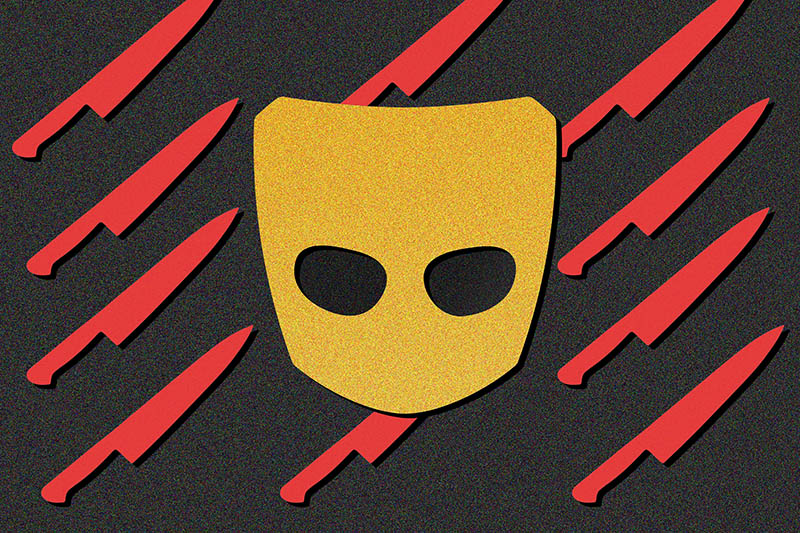
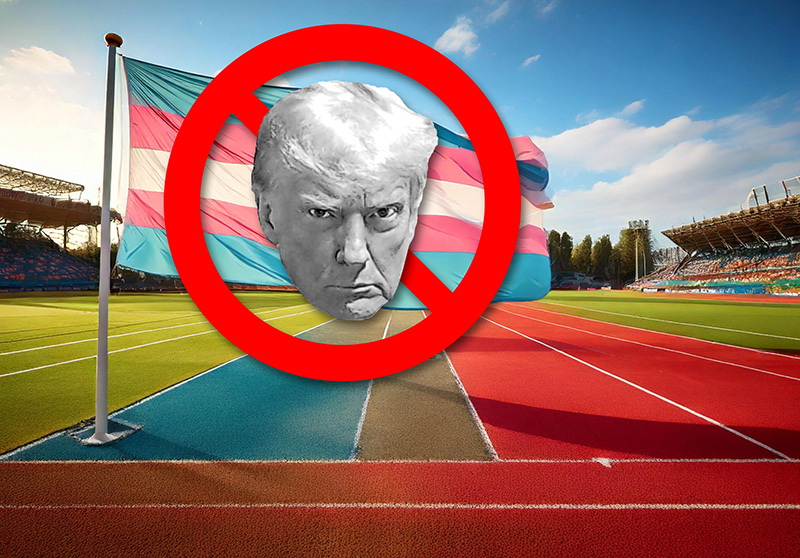













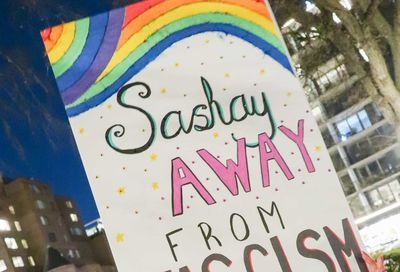
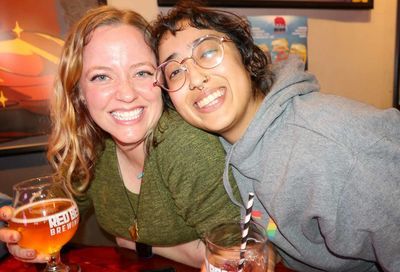
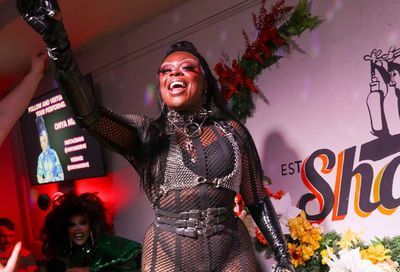
You must be logged in to post a comment.